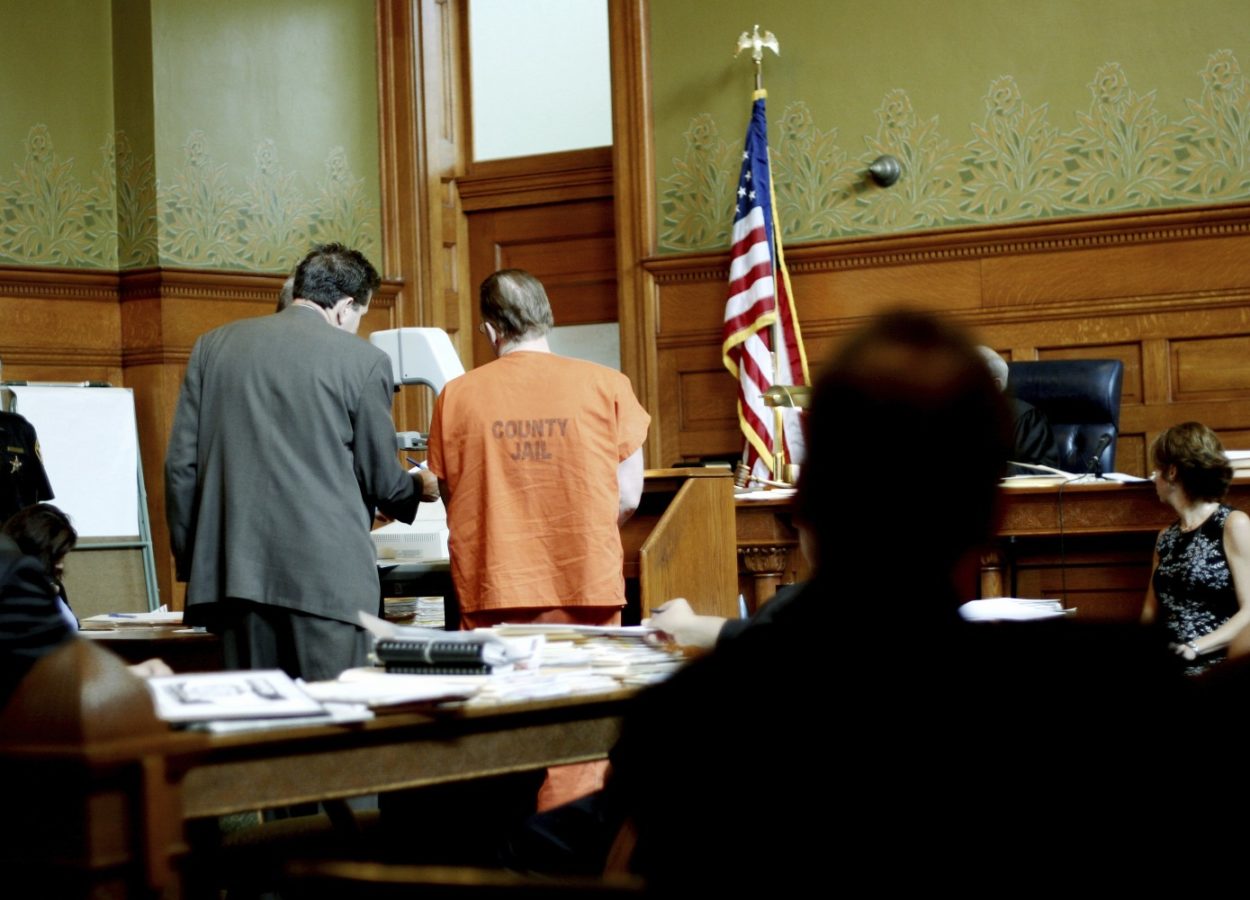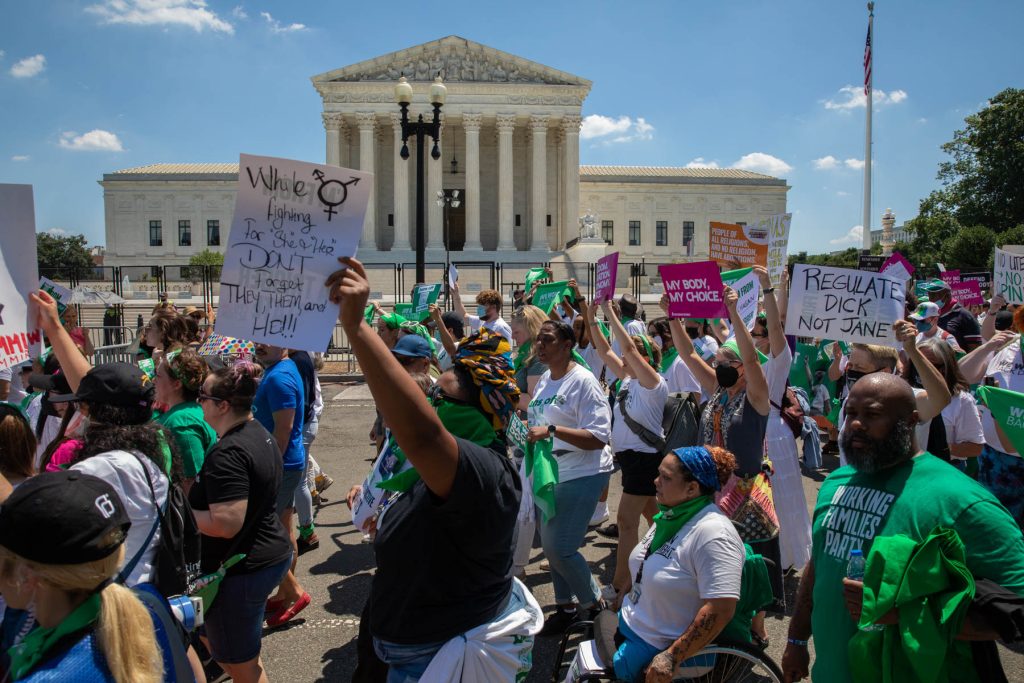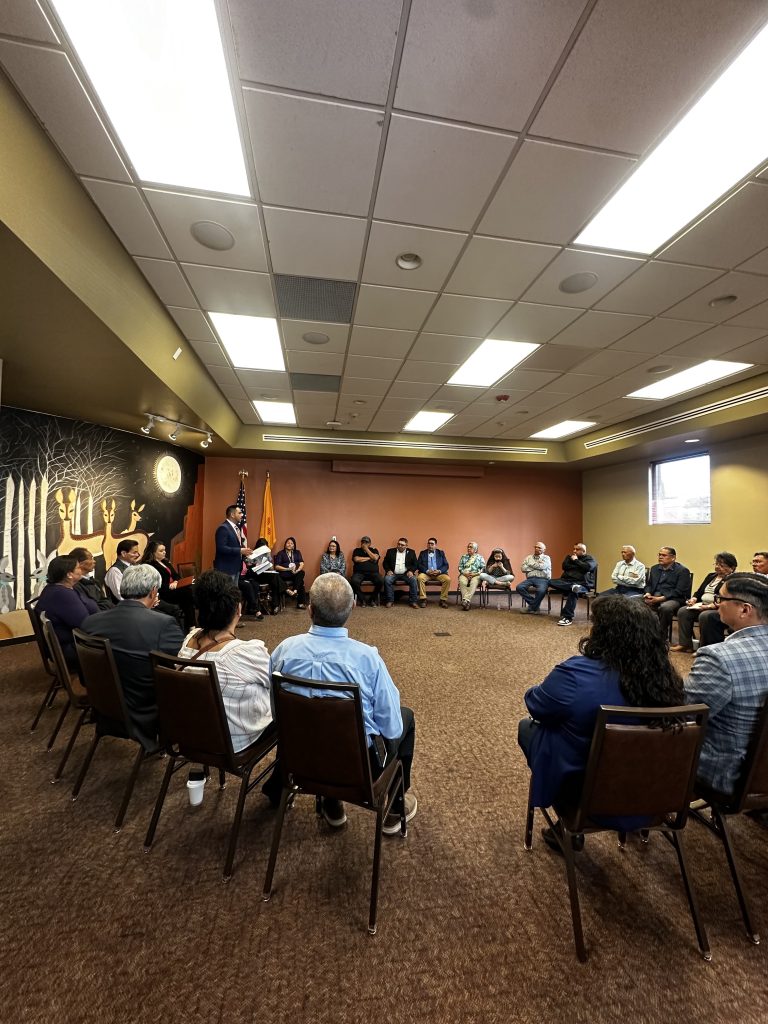A new study looking at the impact of pretrial detention in New Mexico reinforces a previous legislative committee’s study and found that only a small percentage of defendants are charged with a second crime while awaiting trial.
The study, conducted by researchers from the Santa Fe Institute and the University of New Mexico’s Institute for Social Research, found that of the more than 15,000 defendants charged with a felony between July 1, 2017 and June 30, 2021, only a small fraction were charged with a second felony.
“It is worth noting that very few of these defendants were charged with new high-level felonies,” the researchers wrote. “A total of 15 defendants in our dataset, or one out of every thousand, were charged with a new first-degree felony. A total of 141 were charged with a new second-degree felony, 70 of which were violent—about one-half of one percent.”
The latest study comes just months after the New Mexico Legislative Finance Committee released similar findings. The legislative study was released just ahead of the 2022 legislative session where Gov. Michelle Lujan Grisham, Albuquerque Mayor Tim Keller and Bernalillo County District Attorney Raúl Torrez, who is also currently the Democratic nominee for attorney general, all pushed for laws to increase penalties and make it easier to detain defendants before trial.
The end of the session resulted in some concessions and the governor’s office seemed to shift away from its focus on a “rebuttable presumption” and called the final outcome a win. In terms of the legal system, the idea behind rebuttable presumption is that a judge assumes certain defendants are a danger to the community unless proven otherwise by the defendant’s attorney.
The most recent study on pretrial detention, like the previous study, says rebuttable presumptions flip the burden of proof to the defense instead of prosecutors, raising “profound constitutional questions.”
“In essence, they predict that a defendant will commit a serious crime if they are released between arrest and trial,” the researchers wrote. “These presumptions place the burden of proof on the defense to argue that the defendant can be released, perhaps under strict conditions of supervision, without posing a danger to the community—rather than requiring the prosecution to prove they cannot.”
Leading into the 2022 legislative session, both Lujan Grisham and Torrez said rebuttable presumption would help to stop the “revolving door” of criminals.
But according to the latest study, cases of defendants being accused of a second crime while awaiting trial get much more public attention than the many defendants who remain in custody and are later acquitted or found not guilty.
“The defendants whose lives are disrupted due to pretrial detention are largely invisible, and are rarely reported on,” the researchers wrote. “In contrast, when someone is arrested and released and then convicted of a terrible crime, the press reports their name, the name of their victim, and the nature of their act. This raises understandable questions about why they were not behind bars given their arrest, and produces a sense that pretrial supervision isn’t working: that law enforcement is being forced to ‘catch and release’ dangerous criminals, creating a ‘revolving door’ of crime.”
The researchers also wrote that they “tend to agree with those who say that the human cost of unnecessary detention has been historically underestimated.”
A legal philosophy that suggests it is better to err on the side of releasing many guilty defendants instead of incarcerating even one innocent person has many iterations and is an idea that is usually cited as Blackstone’s Formulation. The researchers in the latest study found that rebuttable presumption does the opposite of what Blackstone’s Formulation suggests.
“Despite the presumed intentions of policymakers, these proposals do not accurately target the small fraction of defendants who will be charged with new serious crimes if released pretrial,” the researchers wrote. “Instead, they cast a wide net, recommending detention for a large number of defendants who would not receive any new charges during the pretrial period.
Lujan Grisham will face Republican gubernatorial candidate and former television meteorologist Mark Ronchetti in November. Ronchetti has vowed to go hard on crime but has mostly steered clear of addressing rebuttable presumption. Neither candidate has presented a specific package of legislation they want to see passed, but the makeup of the New Mexico House of Representatives may also change after the November election. Further, legislative priorities are historically not presented until the end of the year.






















